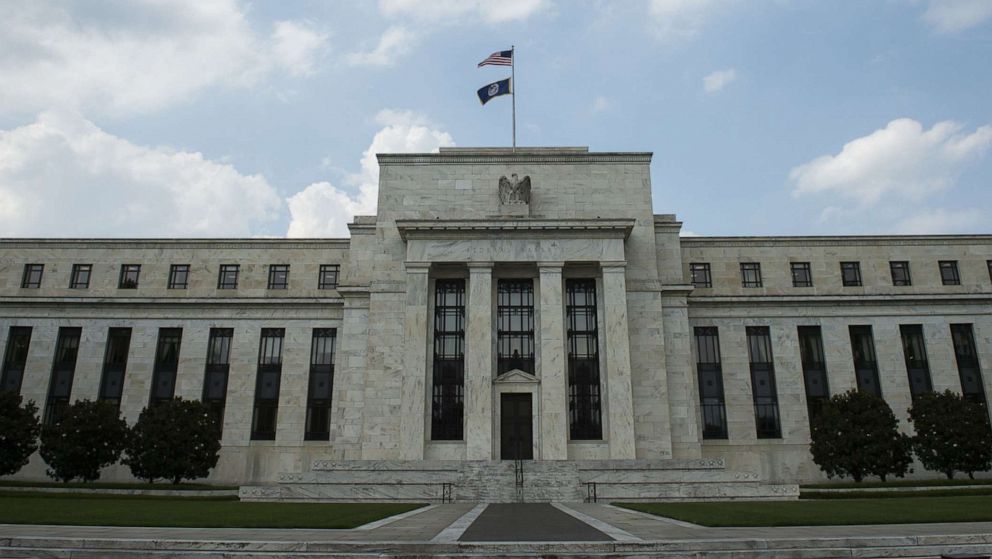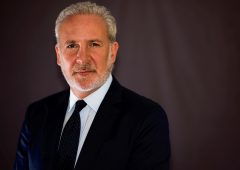Interest Rates Should be Cut Immediately, According to a Former President of the New York Fed
25.07.2024 22:00 2 min. read Kosta Gushterov
Bill Dudley, the former president of the Federal Reserve Bank of New York, reversed his position, advocating an immediate cut in interest rates instead of keeping them higher for an extended period.
Dudley articulated this change in view by stating:
I have changed my mind… Waiting until September unnecessarily increases the risk of recession.
This change is significant, especially given that just two months prior Dudley had argued that a much higher neutral rate could mean that the current federal funds rate of 5.3% was insufficient to control economic growth.
He said the Federal Reserve (Fed) should cut interest rates, ideally at an upcoming policy meeting.
Dudley explained that the robust performance of the U.S. economy over the years shows how the Fed’s measures have not been enough to slow it down. Government spending during the pandemic left individuals and businesses with significant cash reserves.
The Biden administration’s large investments in infrastructure, semiconductors and green technology have fueled demand. In addition, easing financial conditions, especially the stock market upturn, have boosted the spending capacity of wealthier households.
Dusley believes that the Federal Reserve’s attempts to rein in the economy are already showing results. Affluent households continue to spend because of high asset prices and mortgage refinancing at historically low long-term interest rates.
However, many have exhausted their savings, built up by substantial government financial transfers, and are now feeling the strain of high interest rates on credit cards and car loans.
-
1
U.S. PCE Inflation Rises for First Time Since February, Fed Rate Cut Likely Delayed
27.06.2025 18:00 1 min. read -
2
Key U.S. Economic Events to Watch Next Week
06.07.2025 19:00 2 min. read -
3
Gold Beats U.S. Stock Market Over 25 Years, Even With Dividends Included
13.07.2025 15:00 1 min. read -
4
U.S. Announces Sweeping New Tariffs on 30+ Countries
12.07.2025 16:30 2 min. read -
5
US Inflation Heats Up in June, Fueling Uncertainty Around Fed Cuts
15.07.2025 16:15 2 min. read
US Inflation Heats Up in June, Fueling Uncertainty Around Fed Cuts
U.S. inflation accelerated in June, dealing a potential setback to expectations of imminent Federal Reserve rate cuts.
Gold Beats U.S. Stock Market Over 25 Years, Even With Dividends Included
In a surprising long-term performance shift, gold has officially outpaced the U.S. stock market over the past 25 years—dividends included.
U.S. Announces Sweeping New Tariffs on 30+ Countries
The United States has rolled out a broad set of new import tariffs this week, targeting over 30 countries and economic blocs in a sharp escalation of its trade protection measures, according to list from WatcherGuru.
Key U.S. Economic Events to Watch Next Week
After a week of record-setting gains in U.S. markets, investors are shifting focus to a quieter yet crucial stretch of macroeconomic developments.
-
1
U.S. PCE Inflation Rises for First Time Since February, Fed Rate Cut Likely Delayed
27.06.2025 18:00 1 min. read -
2
Key U.S. Economic Events to Watch Next Week
06.07.2025 19:00 2 min. read -
3
Gold Beats U.S. Stock Market Over 25 Years, Even With Dividends Included
13.07.2025 15:00 1 min. read -
4
U.S. Announces Sweeping New Tariffs on 30+ Countries
12.07.2025 16:30 2 min. read -
5
US Inflation Heats Up in June, Fueling Uncertainty Around Fed Cuts
15.07.2025 16:15 2 min. read


